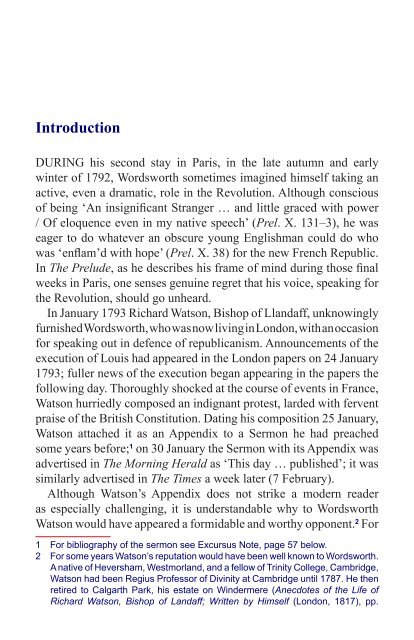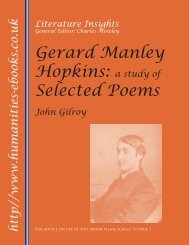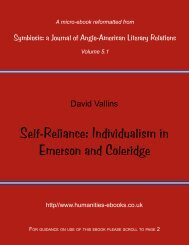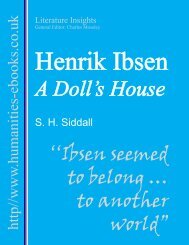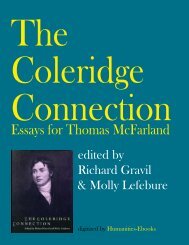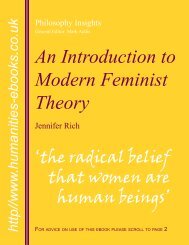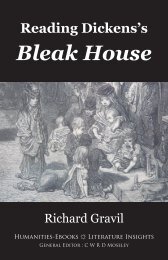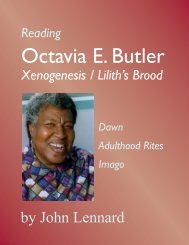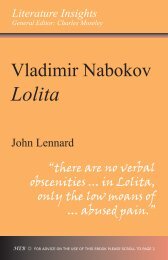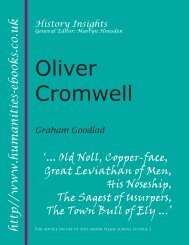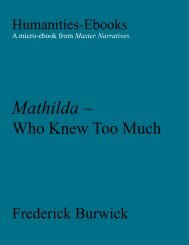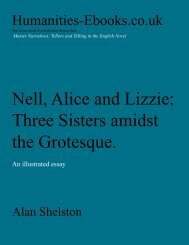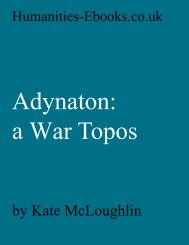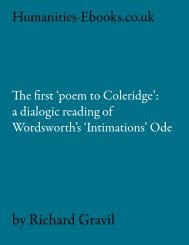Wordsworth's Political Writings - Humanities-Ebooks
Wordsworth's Political Writings - Humanities-Ebooks
Wordsworth's Political Writings - Humanities-Ebooks
You also want an ePaper? Increase the reach of your titles
YUMPU automatically turns print PDFs into web optimized ePapers that Google loves.
Introduction<br />
DURING his second stay in Paris, in the late autumn and early<br />
winter of 1792, Wordsworth sometimes imagined himself taking an<br />
active, even a dramatic, role in the Revolution. Although conscious<br />
of being ‘An insignificant Stranger … and little graced with power<br />
/ Of eloquence even in my native speech’ (Prel. X. 131–3), he was<br />
eager to do whatever an obscure young Englishman could do who<br />
was ‘enflam’d with hope’ (Prel. X. 38) for the new French Republic.<br />
In The Prelude, as he describes his frame of mind during those final<br />
weeks in Paris, one senses genuine regret that his voice, speaking for<br />
the Revolution, should go unheard.<br />
In January 1793 Richard Watson, Bishop of Llandaff, unknowingly<br />
furnished Wordsworth, who was now living in London, with an occasion<br />
for speaking out in defence of republicanism. Announcements of the<br />
execution of Louis had appeared in the London papers on 24 January<br />
1793; fuller news of the execution began appearing in the papers the<br />
following day. Thoroughly shocked at the course of events in France,<br />
Watson hurriedly composed an indignant protest, larded with fervent<br />
praise of the British Constitution. Dating his composition 25 January,<br />
Watson attached it as an Appendix to a Sermon he had preached<br />
some years before; on 30 January the Sermon with its Appendix was<br />
advertised in The Morning Herald as ‘This day … published’; it was<br />
similarly advertised in The Times a week later (7 February).<br />
Although Watson’s Appendix does not strike a modern reader<br />
as especially challenging, it is understandable why to Wordsworth<br />
Watson would have appeared a formidable and worthy opponent. For<br />
For bibliography of the sermon see Excursus Note, page 57 below.<br />
For some years Watson’s reputation would have been well known to Wordsworth.<br />
A native of Heversham, Westmorland, and a fellow of Trinity College, Cambridge,<br />
Watson had been Regius Professor of Divinity at Cambridge until 1787. He then<br />
retired to Calgarth Park, his estate on Windermere (Anecdotes of the Life of<br />
Richard Watson, Bishop of Landaff; Written by Himself (London, 1817), pp.


